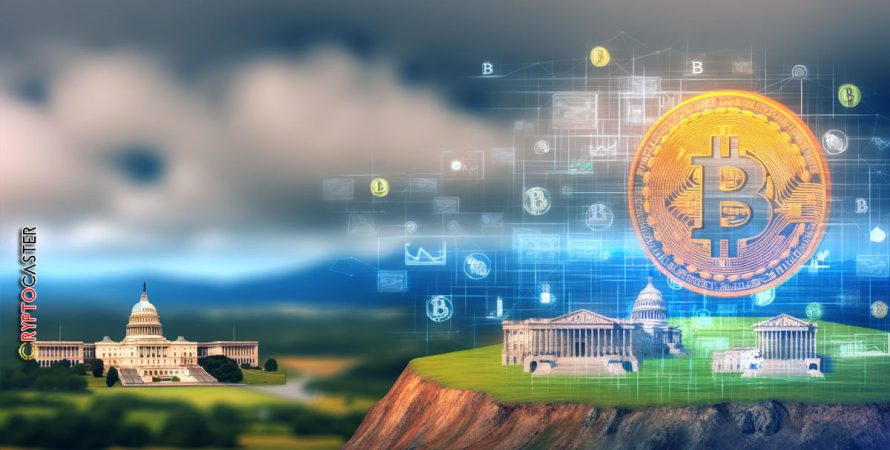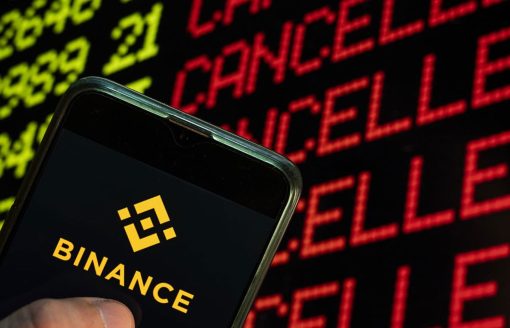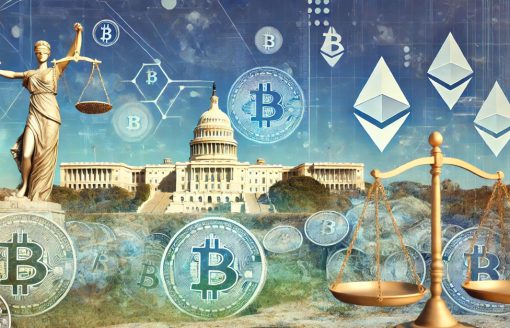The transfer happens after the government files a forfeiture notice from January 2024.
- Recently, a US government bitcoin wallet moved some of its contents.
- One of the biggest Bitcoin holders is the US government.
- After a flash crash, Bitcoin is presently swaying below its all-time high (ATH).
Stay in the know on crypto by frequently visiting Crypto News Today
Resurgent activity has emerged across many influential wallets, marked by asset transfers and significant liquidations, as a result of the current rollercoaster in the cryptocurrency market. Some of the largest Bitcoin holders have recently gotten active again after months of inactivity, highlighting significant changes in their holdings and the ensuing effect on prices.
CryptoCaster Quick Check:
The US government is among the biggest Bitcoin holders, and it has made significant asset transfers to join the group. But why is Bitcoin being moved in the US?
Bitcoin Transfer by the US Government
A wallet bearing the name “U.S. Government: Silk Road DOJ Confiscated Funds” and holding more than 30,100 bitcoins has seen a recent spike in transfer activity, according to data from Arkham Intelligence on Tuesday, April 2.
The transactions, which were valued at about $2 billion at the time of publication, started with a test transfer of 0.001 BTC to a Coinbase Prime wallet, which was worth $65. Later, 1,999 BTC was sent to the same address. The transfers then went on with a second one, sending 29,800 BTC, or roughly $1.9 billion, to a different address.
Although the government’s motivation for the transfer has come under scrutiny, the 2,000 BTC comes after a notice of forfeiture that was filed earlier this year, indicating efforts to carry out the planned sale. The US Department of Justice began proceedings on January 10, 2024, for the two-part sale of 2,934 Bitcoin that had been seized from Ryan Farace and Sean Bridges, two drug traffickers who had been found guilty of using the dark web marketplace.
The US government’s transfer of Bitcoin to Coinbase is similar to how it has previously used the exchange to sell off assets, like the 9,861 BTC sale in 2022. This suggests even more that it may be working to complete the sale of some of its properties connected to the Silk Road.
The 2,000 Bitcoin transfer that made headlines is a small portion of the government’s multibillion dollar bitcoin holdings, despite its significance.
US is Among the Biggest Bitcoin Owners
The bulk of the US government’s stash is made up of assets that were taken from convicted criminal actors, in contrast to many whales whose portfolios are made up of Bitcoin that has been purchased. Among the noteworthy confiscations made by the government are the 69,370 Bitcoin that were taken from the Silk Road in August 2023. This confiscation included other Bitcoin assets, such as Bitcoin Cash (BCH), Bitcoin Gold (BTG), and Bitcoin SV (BSV).
The government’s more than 200,000 BTC hoard also includes criminal confiscations, such as the October 2023 seizure of 94,643 BTC connected to the Bitfinex hack in which 120,000 BTC were stolen in 2016.
Satoshi Nakamoto, with between 750,000 and 1,100,000 BTC, Binance, with 643,546 BTC, Grayscale Investments, with 335,153.8 BTC, and MicroStrategy, with a portfolio that contains over 214,246 BTC, all have more BTC than the US government does.
This is Significant
Regular transactions in whale wallets, such as the US government’s, are uncommon, making such transfers extremely noticeable. Major asset movements are further given significance by factors like the industry’s continuous downward trend and increased market sensitivity.
CryptoCaster™ steadfastly upholds its dedication to keeping our global audience well-informed about the ongoing adoption of blockchain technology, as well as the latest hurdles emerging from government-controlled fiat financial systems, banking conglomerates, and other major institutional entities. Our commitment extends to providing comprehensive updates and insights into how these developments affect the broader landscape of digital currencies, the potential regulatory impacts on blockchain innovations, and the evolving dynamics between traditional financial institutions and emerging cryptocurrency markets. By staying at the forefront of these critical issues, CryptoCaster™ aims to empower our audience with the knowledge needed to navigate the complex interplay of technology, regulation, and finance in the modern world. ![]()
If this article brought you clarity, insight, or value—support the work that made it possible.
At CryptoCaster, we report on Web3, crypto markets, and institutional finance with no billionaire owners, no shareholders, and no hidden agenda. While mainstream media bends toward Elon Musk, BlackRock, and JPMorgan narratives, we stay focused on what matters: truth, transparency, and the public interest.
We don’t just cover the headlines—we investigate the power structures behind them. From FTX and Ripple to the quiet push for CBDCs, we bring fearless reporting that isn’t filtered by corporate interests.
CryptoCaster is 100% paywall-free. Always has been. To keep it that way, we depend on readers like you.
If you believe independent crypto journalism matters, please contribute—starting at just $1 in Bitcoin or Ether. Wallet addresses are below.
Your support keeps us free, bold, and accountable to no one but you.
Thank you,
Kristin Steinbeck
Editor, CryptoCaster
Please Read Essential Disclaimer Information Here.
© 2024 Crypto Caster provides information. CryptoCaster.world does not provide investment advice. Do your research before taking a market position on the purchase of cryptocurrency and other asset classes. Past performance of any asset is not indicative of future results. All rights reserved.
Contribute to CryptoCaster℠ Via Metamask or favorite wallet. Send Coin/Token to Addresses Provided Below.
Thank you!
BTC – bc1qgdnd752esyl4jv6nhz3ypuzwa6wav9wuzaeg9g
ETH – 0x7D8D76E60bFF59c5295Aa1b39D651f6735D6413D
CRYPTOCASTER HEATMAP






